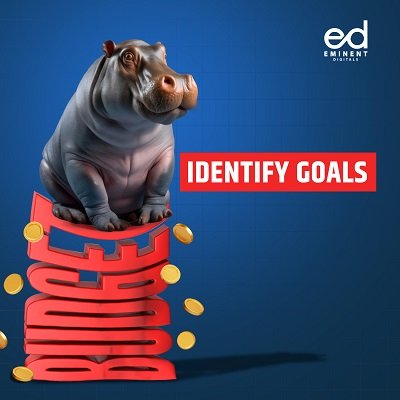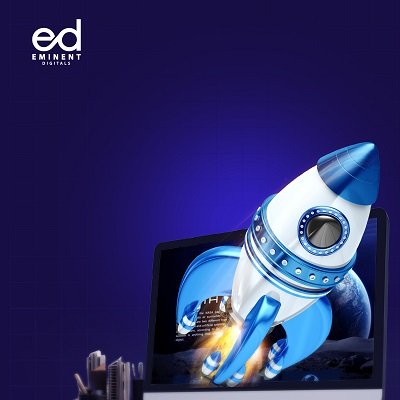
B2B marketers are increasingly turning to AI-powered solutions to automate their tasks, They gain deeper customer insights, and personalize their marketing campaigns with the help of Artificial intelligence.
The B2B marketing landscape is evolving rapidly, and if you’re feeling the pressure to keep up, you’re not alone. Implementing AI in B2B marketing isn’t just a cool, futuristic idea; it’s becoming essential for staying competitive and driving growth in today’s fast-paced market.
According to Gartner, by 2025, 40% of B2B marketing tasks will be augmented by AI technologies. This integration of AI with marketing automation platforms can significantly improve marketing ROI by streamlining workflows and optimising campaign performance.
What is AI and How Can it Help B2B Marketing?
Understanding AI for B2B Marketers
Artificial intelligence might sound complex, but think of it as a really smart assistant that can handle tons of data, learn from it, and help you make better decisions.Think of AI as a powerful assistant for B2B marketing.
It uses two key technologies: Machine Learning (ML) and Natural Language Processing (NLP).
ML learns from your data, finding patterns you might miss. NLP helps AI understand human language. Together, they optimise your marketing efforts by automating tasks, identifying opportunities, and personalising content.
How AI Works in B2B Marketing
AI applications, especially machine learning, sift through mountains of data to uncover insights that you might miss. These insights can reveal patterns and predict trends, giving you the upper hand in strategizing your marketing efforts.
How is AI Used in B2B Marketing?

Artificial intelligence is being used in a variety of ways to streamline and enhance B2B marketing:
Personalisation:
Tailor your content and messages to fit specific buyer personas. They make your communications more engaging and relevant. Eminent Digitals, a leading digital marketing company, uses AI and creates Marketing strategies to deliver exceptional results for their clients.
Tools like HubSpot and Marketo can help automate personalized email campaigns and website content.
Lead Generation and Qualification:
AI helps identify which leads are most likely to convert, saving you time and increasing your business efficiency. Tools like AI-driven lead scoring are particularly useful for this purpose.
Use platforms like Salesforce Einstein to automatically score and segment leads, ensuring your sales team focuses on high-potential prospects.
Content Marketing:
Use data-driven insights to create content that truly resonates with your audience and improve your customer relationship management (CRM) by understanding their needs and preferences. There are several online AI tools that help with content creation.
Leverage AI-based content creation tools like Copy.ai, chatgpt or Jasper to generate relevant and engaging content tailored to your target audience’s preferences.
Marketing Automation:
Let AI handle repetitive tasks, freeing up your time to focus on strategy and creativity. AI-driven marketing automation platforms can schedule and optimize your campaigns with minimal manual intervention.
Predictive Analytics:
AI analyzes historical data to predict future trends and customer behavior. This capability allows marketers to anticipate needs and tailor their strategies accordingly, enhancing overall customer satisfaction.
Chatbots and Virtual Assistants:
These AI-powered tools provide instant support and engagement for customers, improving their experience and saving you time. AI chatbots can handle basic inquiries and qualify leads 24/7, allowing human representatives to focus on more complex interactions.
Email Marketing:
AI optimizes email campaigns by personalizing content and timing, leading to higher engagement rates. AI-based email marketing tools can analyze recipient behavior to determine the best time to send emails.
Tools like SendGrid or Mailchimp offer AI-powered features for personalization.
Social Media Marketing:
AI analyses trends and audience behaviours to help you craft more targeted and effective social media strategies. Most Social media agencies analyse audience behaviours and create social media strategies.
Platforms like Hootsuite Insights or Sprout Social can help you understand audience behavior and refine your social media strategy.
SEO and Content Optimization:
AI tools identify relevant keywords and optimize your content for better search engine rankings. AI-driven SEO tools can help improve your content’s visibility and effectiveness.
Use AI-driven SEO tools such as SEMrush or Ahrefs to identify high-value keywords and optimize your content for search engines.
Getting Started with AI in B2B Marketing

Identify Your Goals
Before jumping into AI, it’s crucial to pinpoint what you want to achieve. Whether it’s boosting lead generation, improving content marketing, or enhancing campaign performance, clear goals will guide your AI strategy and ensure you get the results you’re aiming for.
Evaluate AI Tools and Platforms
There are numerous AI tools available, each offering different features. From marketing automation platforms with AI capabilities to AI-powered content creation tools, there’s something for every need. Research B2B AI tools to find the best options for your specific goals.
Data is Key
Good data is the foundation of successful AI implementation. Make sure your data is clean and well-organized. Address potential data challenges by ensuring data quality and integrating information from various sources for a comprehensive view.
The Role of Artificial intelligence in the B2B Sales Funnel
AI is transforming the B2B sales funnel by providing valuable support at every stage:
Awareness: AI helps identify potential customers and understand their needs, making your initial outreach more strategic.
Interest: AI personalised content and interactions, nurturing prospects and maintaining their interest.
Decision: AI provides insights that help tailor your sales approach, making the decision process smoother.
Action: AI optimises follow-up strategies, ensuring you close deals effectively and efficiently.
How to Maximize the Impact of Artificial intelligence in B2B Marketing

Focus on Human-AI Collaboration
AI isn’t here to replace marketers; it’s here to make us better. By automating routine tasks, AI frees up your time for strategic thinking and creativity. For example, while AI handles data analysis, you can focus on crafting compelling campaigns based on those insights.
Start Small and Scale Up
Begin with a pilot project to test and refine your AI strategy. This allows you to learn and make adjustments before scaling up, ensuring a smoother and more effective implementation.
Measuring Success
Tracking the performance of your AI-powered marketing initiatives is crucial. Use key metrics such as lead conversion rates, engagement levels, and ROI to evaluate the impact of AI and make data-driven adjustments to your strategy.
List of B2B companies using AI
Lead Generation and Qualification:
- IBM uses Watson Marketing to analyse customer data and identify high-value leads. This allows their sales teams to focus their efforts on the most promising prospects.
Content Marketing:
- Adobe uses AI to analyse customer behaviour and content performance. This allows them to create targeted content that resonates with their audience and drives conversions.
Chatbots and Virtual Assistants:
- “Salesforce uses AI-powered chatbots to answer customer questions and provide support 24/7. This frees up their human customer service representatives to handle more complex inquiries.”
The Future of AI in B2B Marketing
Emerging trends like generative AI are set to further revolutionise B2B marketing. Generative AI can create personalised content, design marketing materials, and generate innovative campaign ideas. As AI technology continues to advance, it will unlock new possibilities for B2B marketers to innovate and stay ahead of the competition.
Conclusion
Implementing Artificial Intelligence in B2B marketing offers numerous benefits, from personalization and lead generation to content creation and predictive analytics. Embrace AI to unlock its potential for growth and stay competitive in the evolving marketing landscape. The future is here—don’t miss out on the AI revolution in B2B marketing.

